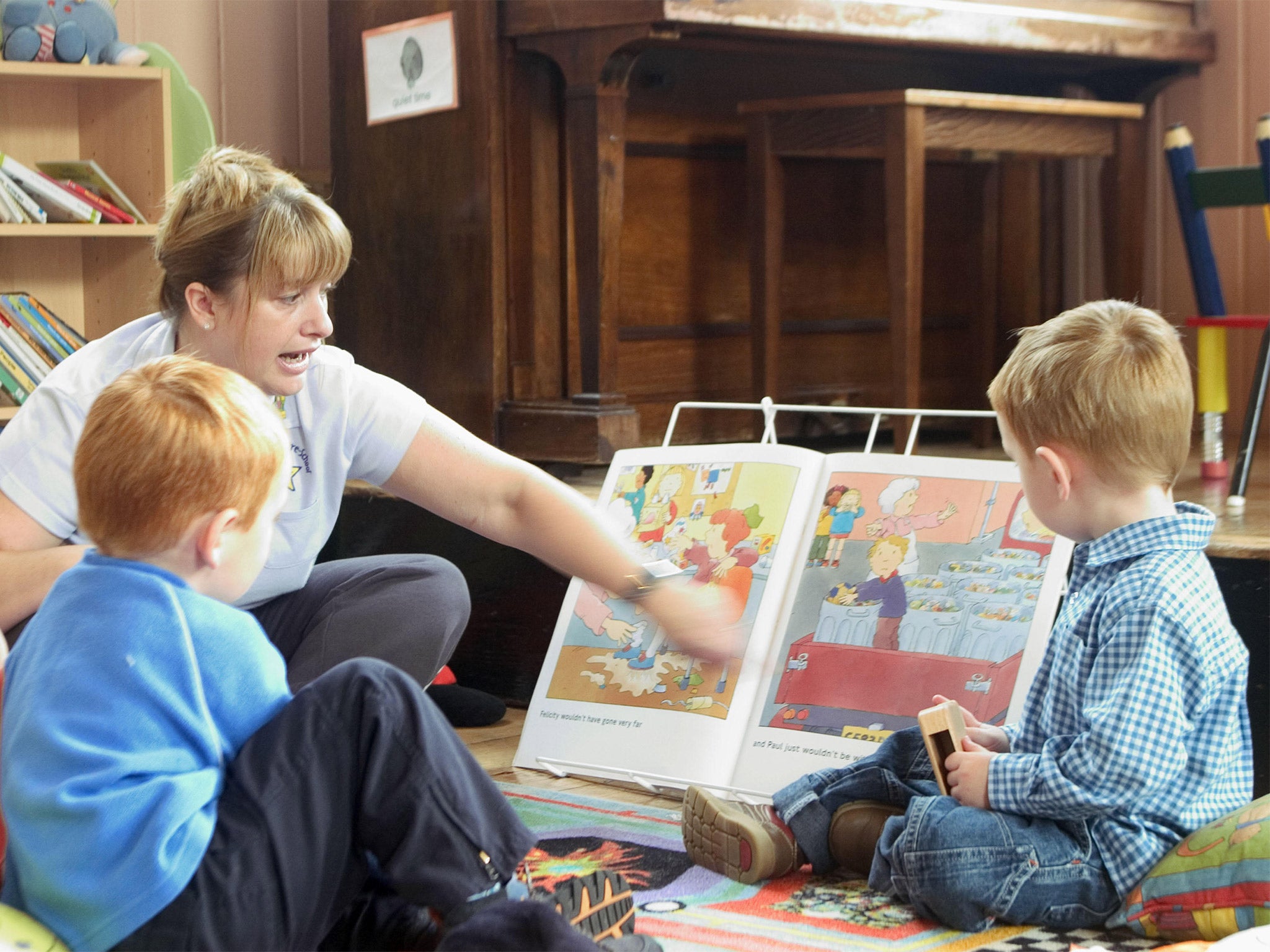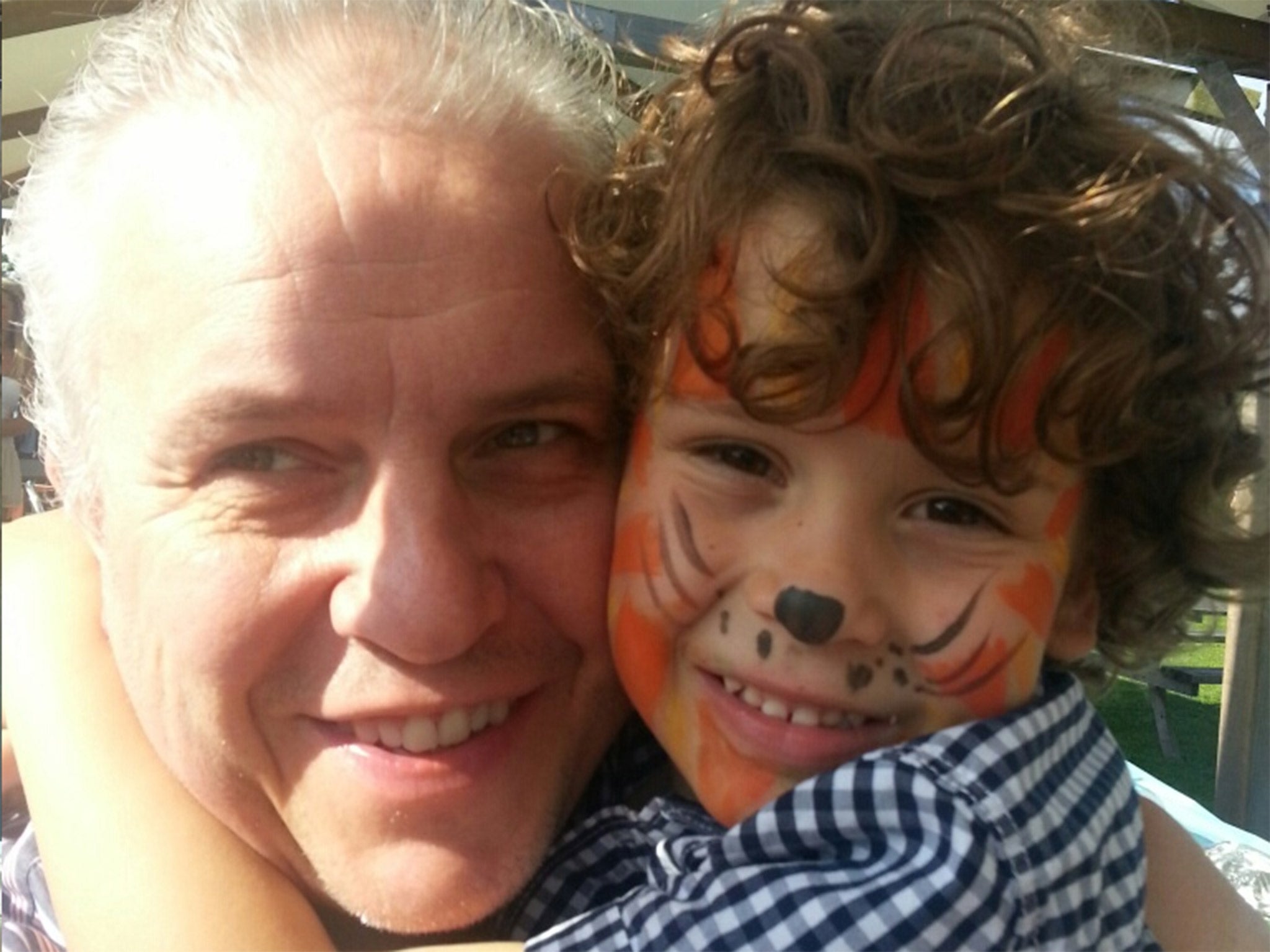Pushy parents putting children as young as three into private tutoring to win prep school places
Children are pushed too hard too soon, claim educationists

Your support helps us to tell the story
From reproductive rights to climate change to Big Tech, The Independent is on the ground when the story is developing. Whether it's investigating the financials of Elon Musk's pro-Trump PAC or producing our latest documentary, 'The A Word', which shines a light on the American women fighting for reproductive rights, we know how important it is to parse out the facts from the messaging.
At such a critical moment in US history, we need reporters on the ground. Your donation allows us to keep sending journalists to speak to both sides of the story.
The Independent is trusted by Americans across the entire political spectrum. And unlike many other quality news outlets, we choose not to lock Americans out of our reporting and analysis with paywalls. We believe quality journalism should be available to everyone, paid for by those who can afford it.
Your support makes all the difference.Children as young as three are being traumatised by the strain of private tutoring to get them into the best prep schools, the head of a leading tutoring agency has warned.
Will Orr-Ewing, head of Keystone Tutors, has said he believed parents should not use private tutors for their children until they are at least seven.
However, he added, the competition to get into private schools is so great that parents are having them coached on their ability to interact with other children, as well as their language and vocabulary skills, from the age of three or four.
“We’ve heard of young children locking themselves in the bathroom when they hear the tutor is coming because they have had lessons every day from a ridiculously young age - so they associate tutoring with stress and misery,” he said.
“In many cases tutoring is done by graduates who may have excellent academic credentials but no experience of working with very young children. There is a lazy assumption that the younger the children are the easier they are to teach but the reverse is actually the case.”
His comments were echoed by private school headmistress Lucie Moore, head of Cameron House School in Chelsea, west London, who said: “We would certainly not encourage or endorse families tutoring or feeling the need to prepare their very young children for reception entrance assessments. Our process is very gentle and relaxed and there would be no benefit or need for preparation by parents.”
Her school assesses children by playing games, singing songs and reading them a story - activities for which there can be no coaching. “We do not test them,” she added.
Latest figures show one in four children now received private tutoring paid for by their parents to top up their education - steady rise from 18 per cent five years ago, according to the education charity the Sutton Trust.
Mr Orr-Ewing’s warning comes after another private school head, Sebastien Hepher of Eaton Square prep school in west London, warned that private tutoring can be counterproductive, and “further exhaust” tired pupils at the end of the day. Up to 40 per cent of parents in London have resorted to hiring private tutors.
He added it could bring conflict between schools and tutors, saying: “Homework can be affected due to lack of time.”
Case study: "The younger they are the more they benefit"
Kevin Horton, 47, is a security manager living in Essex. His son Benjamin is five years old.

Benjamin started receiving tuition about 10 months ago when he was four. He was already bilingual because his mother is Portuguese and he picked up the language from her and her family.
“He is learning French now and he isn’t bad. I would like to think he will be fluent in the next few years. When he gets to be seven or eight, if he is happy with two languages, he will be able to speak his mind and stop learning French.
“For us it’s a case of introducing him to as much as possible while his brain’s a sponge. Ben can tell me how old he is in French – it gives me a great thrill to hear that.
“I’m obsessed with learning – I was never given these opportunities growing up in the 1970s. The younger they are the more they benefit. Sometimes he’s not in a learning mood and then we leave him alone. I’m not a pushy parent at all. We realise he’s five years old so we don’t really push – I’m quite laid-back.
“A lot of parents will be stressing their children out by sending their children to tutors to prepare for exams. Children are different the same way adults are. They learn in different ways.
“I think some children would feel under pressure and get stressed but Ben finds it fun and his attention span has increased too – he’s very inquisitive. Is there anything wrong with learning if you find it fun? If parents feel their children are being stressed out by tuition maybe they should try another way – take them to a castle and let them soak up the experience instead of having the information forced down throat.
Join our commenting forum
Join thought-provoking conversations, follow other Independent readers and see their replies
Comments